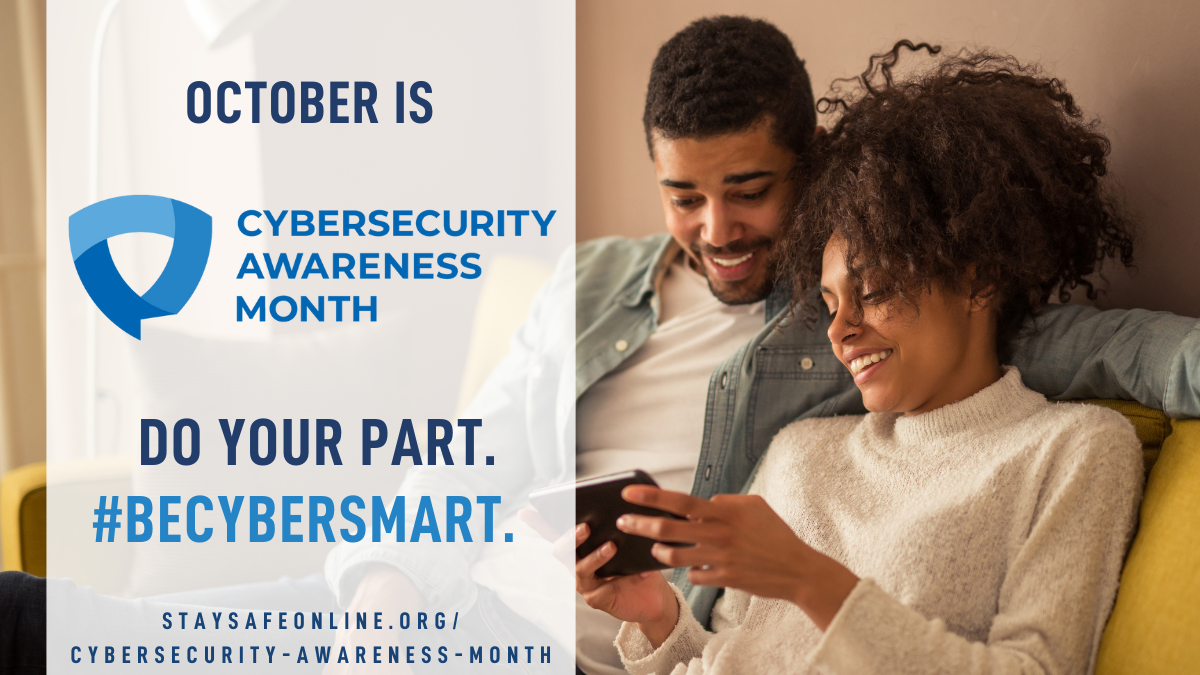
Originally published in: https://m360.sim.edu.sg/article/Pages/Cyber-threats-COVID19-and-Giving-Cyber-Criminals-a-Run-for-Their-Money-.aspx
26 October 2021
Cybersecurity Awareness Month is an opportunity for everyone to do their part to upskill themselves to keep cyber-criminals at bay. But this doesn’t mean that the journey stops here. In fact, it is just the start of a lifelong learning process of being cyber smart.
Cybersecurity Matters: How and Why You are Central to a Safer Interconnected World
Unless you’ve undergone a thorough digital detox and been Internet-free for a while (your mind and body will probably thank you for it!) you already know that cyber-security and cyber-safety threats are a key issue faced by societies and governments worldwide. You may also be aware that governments, tech companies, organisations, and institutions are working hard around-the-clock to keep us safe.
What you may not be as cognisant of is the critical role that every individual, including you and I, play in cybersecurity. This information becomes even more important when we consider that cyber threats come in various forms, are morphing at lightning speed, and each of us is a potential victim.
How so? In our increasingly digitally connected world, every Internet-connected (or Internet of Things, or simply IoT) device is a potential gateway for cybercriminals and other bad cyber-actors. Among children, for example, studies have consistently shown that mobile phone ownership increases cyber-risks, such as cyber-bullying, risky contact, identity theft, etc., exponentially.
IoT devices, like security cameras and baby monitors, Wi-Fi routers, smart watches and fridges, and even medical devices like pacemakers, are now a routine part of our daily lives. However, these devices are susceptible to cyber-attacks if the underlying security infrastructure or protocols are weak or outdated. Simple steps, like changing default passwords, regular software updates, and covering webcams, can go a long way in reducing cyber-attacks.
Cybercrime and the COVID-19 Connection
While cybercrime has been rising in recent years, rapid and hurried digital adoption due to COVID-19 resulted in an unprecedented surge in cybercrime globally. Cyber-savvy Singapore was no exception. According to the Cyber Security Agency of Singapore’s Singapore Cyber Landscape 2020 report, Singapore witnessed a spike in COVID-19-related phishing, scams, and ransomware cases, with 16,117 reported cybercrime cases accounting for 43 per cent of overall crime in 2020.
Many of these crimes are preventable, as cyber-criminals rely on human error and absence of cyber-awareness to entrap victims. Cybercriminals are smooth operators, and they continue to use increasingly sophisticated tools and techniques to bait and lure us into their traps.
So, let’s face it: we are all likely to be victims of cybercrime at some point in our lives. Until detection, prevention, and awareness increases, cybercriminals still have the upper hand. But we don’t have to be passive victims. We can reduce potential cybercrime impacts by being aware of and implementing good cyber-hygiene practices.
Indeed, this is the overarching theme for Cybersecurity Awareness Month being observed throughout October to raise awareness about cybersecurity and everyone’s role in a creating a safer interconnected world.
An unfortunate but effective analogy can be drawn between cybersecurity and COVID-19 management. Unfortunate, because we are all suffering from COVID-19 fatigue. However, the analogy is useful as COVID-19 prevention measures are now front and centre of our daily consciousness. The same should be the case for cyber-hygiene and cybersecurity measures as well.
If we think of cyber-threats in the same way we do COVID-19 management, then we can understand why prevention (safe distancing, masks, washing, and sanitising hands, etc.) is better than cure.
Cybersecurity is Everyone’s Responsibility
Since October 2003, Cyber Security Awareness Month (CSAM) has expanded from a collaborative effort between government and industry to ensure every American has the resources they need to stay safer and more secure online, to a global event.
Do Your Part. #BeCyberSmart is the overarching theme for CSAM. Let’s give cyber-criminals a run for their money!
Being cyber-smart involves knowing and implementing basic cyber best practices.
Here are some tips to get you started:
- Change default passwords on all devices
- Use long, unique passphrases for all accounts or use a password manager
- Enable multi-factor authentication wherever possible
- Update software as soon as updates are available
- Keep backup copies of your data, both online and offline
Cybercrime is one of the deadliest threats confronting governments and societies today. Ultimately, cybersecurity efforts need to embrace a whole-of-society approach in order to be truly effective. By making cybersecurity a priority, we can do our part to keep the world safer (yes, literally!) and make things more difficult for the bad guys.

Comments are closed